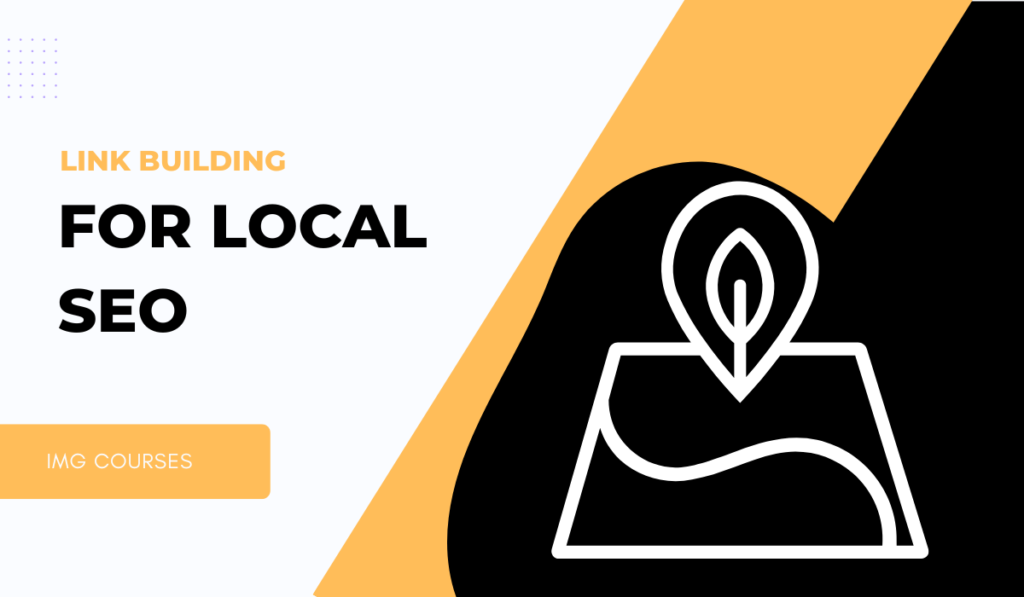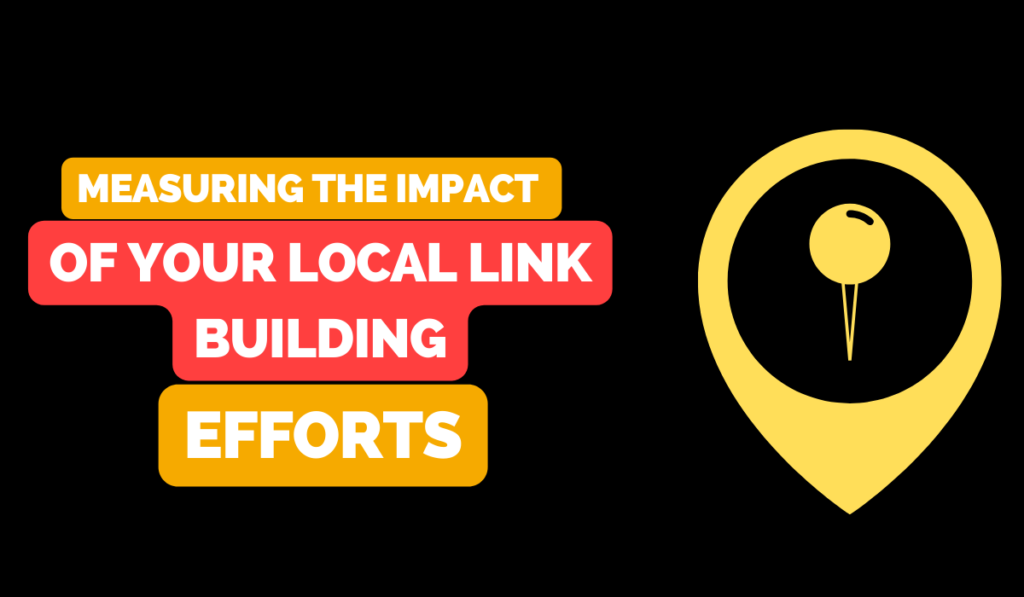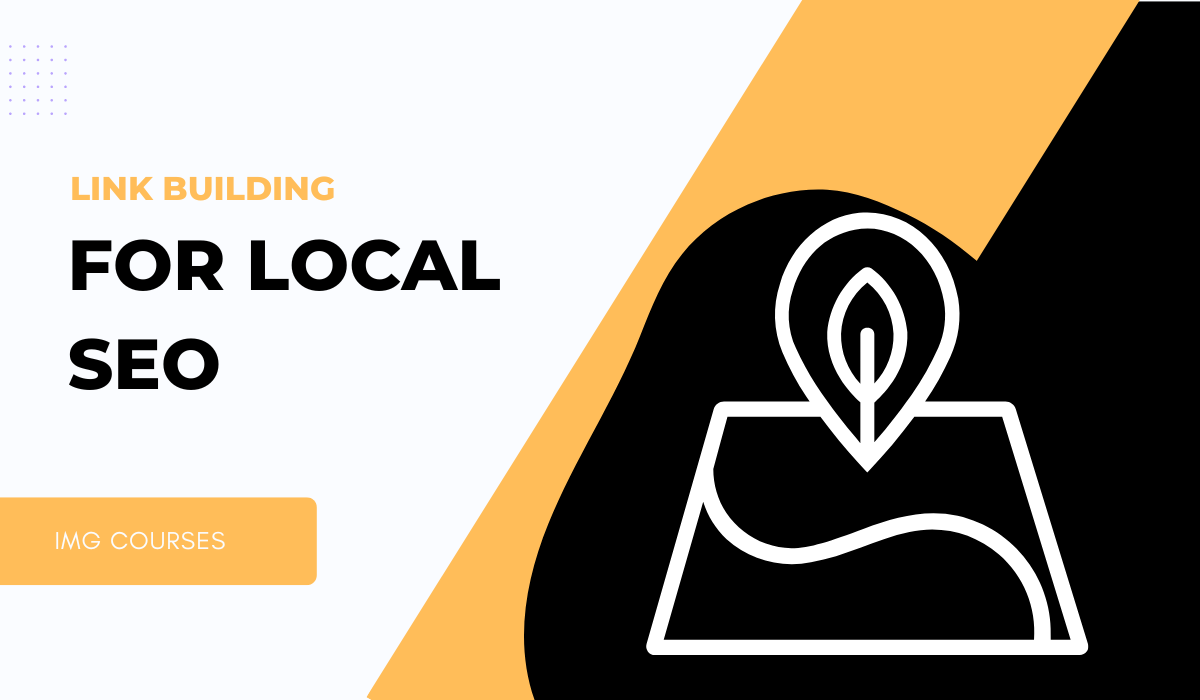
Hey there, local business owners and marketers! Are you looking to boost your online presence and attract more customers from your area? If so, you’re in the right place. Link building for local SEO is a game-changer in improving your local search rankings and driving more traffic to your website.
In this ultimate guide, we’ll dive deep into local link building and show you how to create a winning strategy to help your business stand out in the crowded online marketplace. We’ll cover:
- The importance of local SEO for businesses
- The role of link building in local SEO success
- An overview of what you’ll learn in this comprehensive guide
So, whether you’re new to local SEO link building or looking to take your efforts to the next level, this guide has covered you. Let’s get started on this exciting journey together and unlock the full potential of your local business!
Understanding Local Link Building
Before we discuss local link building in detail, let’s first understand what it is and how it differs from traditional link building.
Local link building is building contextually and locally relevant links to a business website. In other words, it’s all about attracting links from websites with the same local audience as your own. This type of link-building is essential for local businesses looking to improve their visibility in local search results.
So, how does local link building differ from general link building? Here are a few key points:
- Local link building is not just about acquiring links; it’s about acquiring the right links. It focuses on acquiring links from websites that are relevant to your industry and geographic location. This differs from general link building, which casts a wider net and may sometimes be less targeted.
- Local backlinks often come from websites that are not necessarily industry-specific but have a solid regional presence, such as local directories, news outlets, and community organizations.
- Local backlinks’ impact on your search rankings is often more significant than general backlinks.
Now, you might be wondering, “Why should I invest time and effort into local SEO link building?” The answer is not just simple, but also compelling: local link building is a powerful tool for boosting your local search rankings. By acquiring high-quality local backlinks, you’re not just sending strong signals to search engines, but also establishing your business as a trusted and authoritative source within your local community. This can lead to increased visibility, more local customers, and ultimately, more business.
In the next section, we’ll explore how to identify the best local link opportunities for your business and build a strong foundation for your local SEO success.
Identifying Local Link Opportunities
Now that you understand the importance of local link building, it’s time to start identifying potential link opportunities for your business. Don’t worry; you don’t need to be a seasoned SEO expert to find valuable local backlinks. Here are some of the best places to start your local link-building journey:
1. Local Business Directories
Local business directories are online platforms that list businesses in a specific geographic area. These directories are excellent sources for local citations, which are online mentions of your business name, address, and phone number (NAP). Consistent NAP information across multiple directories helps search engines verify your business’s legitimacy and can improve your local search rankings.
Some of the top local business directories to target include:
- Google My Business
- Yelp
- Yellow Pages
- Bing Places
- Apple Maps
2. Local Press and Media Outlets
Getting your business featured in local news stories or blog posts is a fantastic way to earn high-quality local backlinks. To increase your chances of getting coverage, consider the following strategies:
- Send out press releases for newsworthy events like grand openings, new product launches, or community initiatives.
- Pitch story ideas to local journalists and bloggers that align with their interests and audience.
- Offer your expertise as a source for industry-related articles.
- Community Events and Sponsorships
Participating in or sponsoring local community events can help you build relationships with other local businesses and organizations, leading to valuable link opportunities. Some ideas include:
- Sponsoring a Little League team or charity event
- Participating in local festivals or trade shows
- Hosting workshops or seminars related to your industry
3. Local Partnerships and Collaborations
Partnering with other local businesses can be a mutually beneficial to earn local backlinks. Consider the following collaboration ideas:
- Guest posting on each other’s blogs
- Co-hosting events or webinars
- Offering exclusive discounts to each other’s customers
By exploring these local link opportunities, you’ll be well on your way to building a solid foundation for your local SEO success. In the next section, we’ll discuss optimizing your website for local link building and making the most of your newly acquired backlinks.
Optimizing Your Website for Local Link Building
You’ve identified some fantastic local link opportunities for your business. However, before you start reaching out to these websites, ensuring your website is optimized for local SEO is crucial. After all, you want to make the most of those hard-earned local backlinks by providing a seamless user experience and relevant content for your local audience.
1. Creating Locally-Focused Content
One of the best ways to attract local backlinks is by creating content tailored to your local audience. This can include:
- Local guides and resources: Create helpful content that showcases your expertise and provides value to your local community. For example, if you’re a restaurant owner, you could create a guide to the best local farmers’ markets or a list of must-try local dishes.
- Local news and updates: Keep your audience informed about the latest happenings in your area. Share your thoughts on local events, changes in regulations, or new developments affecting your industry.
- Building Internal Links
Internal links point from one page on your website to another. They help search engines understand your site’s structure and can distribute link equity among your pages. When building internal links, keep the following best practices in mind:
- Use descriptive anchor text that accurately reflects the content of the linked page
- Link to relevant pages that provide additional value to your readers
- Avoid over-optimizing your anchor text with exact-match keywords
2. Ensuring a Mobile-Friendly Website
With more and more people using mobile devices to search for local businesses, ensuring that your website is mobile-friendly is essential. A mobile-responsive website provides a better user experience and can improve your local search rankings. Here are some tips for optimizing your website for mobile devices:
- Use a responsive design that automatically adjusts to different screen sizes
- Ensure that your content is easily readable on smaller screens
- Optimize your images and videos for faster loading times on mobile connections
By implementing these website optimization strategies, you’ll be better positioned to attract and retain local visitors and earn valuable local backlinks from other websites in your community. In the next section, we’ll discuss how to execute your local link building strategy and start seeing real results for your business.
Executing Your Local Link Building Strategy
Now that your website is optimized for local SEO, it’s time to implement your local link-building strategy. This is where the rubber meets the road, and you start actively building valuable local backlinks to your business website.
1. Claiming and Optimizing Local Business Profiles
One of the first steps in executing your local link-building strategy is to claim and optimize your business profiles on popular platforms like Google My Business and Yelp. These profiles provide valuable backlinks to your website and help improve your visibility in local search results.
When optimizing your local business profiles, make sure to:
- Complete all relevant fields, including your business name, address, phone number, website URL, and business hours
- Add high-quality photos of your business, products, or services
- Encourage satisfied customers to leave reviews on your profile
- Reaching Out to Local Websites and Influencers
Once you’ve identified potential local link opportunities, it’s time to reach out to these websites and influencers. The key to successful outreach is personalizing your approach and offering value to the website owner or influencer.
Here are some tips for effective outreach:
- Craft a compelling subject line that grabs the recipient’s attention.
- Personalize your message by mentioning specific aspects of their website or content that you appreciate.
- Please explain how your business or content is relevant to their audience and why a link to your website would be valuable.
- Offer to share their content on your social media channels or provide a testimonial for their products or services.
Remember, building relationships is a crucial component of successful local link-building. Focus on creating genuine connections with other local businesses and influencers, and the backlinks will follow naturally.
2. Monitoring and Managing Your Local Backlinks
As you acquire local backlinks, keeping track of your progress and ensuring your link profile remains healthy is essential. Here are some tools and strategies for monitoring and managing your local backlinks:
- Use tools like Google Search Console, Ahrefs, or SEMrush to monitor your backlinks and identify potentially harmful or spammy links.
- Regularly check your business’s mentions online and contact websites mentioning you without providing a link, politely asking them to add one.
- Disavow low-quality or spammy links that could harm your local SEO efforts.
By consistently executing your local link-building strategy and monitoring your progress, you’ll start seeing improvements in your local search rankings and organic traffic. In the next section, we’ll discuss how to measure the impact of your local link-building efforts and make data-driven decisions to refine your strategy over time.
Measuring the Impact of Your Local Link Building Efforts

Congratulations on executing your local link-building strategy! But how do you know if your efforts are paying off? Measuring the impact of your local SEO campaign is crucial for making data-driven decisions and continually refining your approach.
1. Tracking Local Search Rankings
One of the most important metrics to track is your local search rankings. By monitoring your business’s position in local search results, you can gauge the effectiveness of your local link-building efforts and identify areas for improvement.
Some popular tools for tracking local search rankings include:
- Google Search Console
- Moz Local
- BrightLocal
- Whitespark
Remember, local search rankings can fluctuate over time, so it’s essential to track your progress consistently and look for trends rather than getting caught up in day-to-day changes.
2. Analyzing Website Traffic and Engagement
Another key metric to monitor is your website traffic and engagement. As your local link-building efforts start to pay off, you should see an increase in organic traffic from local sources.
Use tools like Google Analytics to:
- Track the number of visitors coming from local searches
- Monitor engagement metrics like bounce rate, time on site, and pages per session
- Set up goals to track conversions, such as phone calls, form submissions, or purchases
By analyzing your website traffic and engagement, you can better understand how your local link-building efforts impact your bottom line and make informed decisions about where to focus your resources.
3. Evaluating the ROI of Your Local Link Building Campaign
Ultimately, the success of your local link-building campaign comes down to its return on investment (ROI). To calculate the ROI of your efforts, consider the following:
- The cost of your time and resources invested in local link-building
- The value of the new customers and revenue generated as a result of your improved local search rankings
By comparing the costs and benefits of your local link-building campaign, you can determine whether your efforts generate a positive ROI and make adjustments to maximize your results.
In the next section, we’ll discuss some common local link-building mistakes to avoid, ensuring that your hard work pays off through improved local search rankings and increased revenue for your business.
Common Local Link Building Mistakes to Avoid
While local link building can be a powerful tool for boosting your local SEO, it’s essential to approach it with care and avoid common mistakes that could harm your business’s online reputation or search rankings. Here are some pitfalls to watch out for:
1. Over-Optimizing Anchor Text
When building backlinks, it’s essential to use diverse and natural-looking anchor text. Over-optimizing your anchor text by repeatedly using exact-match keywords can trigger spam filters and potentially harm your local search rankings.
Instead, aim for a mix of branded, generic, and long-tail anchor text that accurately reflects the content of your linked pages.
2. Focusing on Quantity Over Quality
In the world of local link building, quality always trumps quantity. It’s better to have a handful of high-quality local backlinks from authoritative and relevant websites than many low-quality links from spammy or irrelevant sources.
Focus on building relationships with reputable local businesses and influencers, and prioritize link opportunities to provide genuine value to your target audience.
3. Neglecting to Diversify Your Link Profile
While local link building is essential, it’s just one piece of the giant SEO puzzle. To create a well-rounded and sustainable link profile, it’s essential to diversify your link-building efforts and acquire backlinks from a variety of local and industry-specific sources.
Only put some of your eggs in one basket by focusing solely on local link-building. Instead, incorporate a mix of strategies, such as creating high-quality content, participating in industry forums, and leveraging social media to attract a diverse range of backlinks.
4. Ignoring the Relevance of Linking Websites
When pursuing local link-building opportunities, it’s crucial to consider the relevance of the linking website to your business and target audience. A backlink from a locally relevant website, such as a chamber of commerce or local news outlet, will carry more weight than a link from a completely unrelated website.
Always prioritize link opportunities that are both locally and contextually relevant to your business, as these will have the most significant impact on your local search rankings and overall online visibility.
By avoiding these common local link-building mistakes and building a high-quality, diverse, and relevant backlink profile, you’ll be well on your way to local SEO success and increased online visibility for your business.
Conclusion
Congratulations on making it to the end of this ultimate link-building guide for local SEO! By now, you should have a solid understanding of the importance of local link building, how to identify valuable link opportunities, optimize your website for local SEO, execute your local link-building strategy, measure your success, and avoid common mistakes.
Remember, local link building is an ongoing process that requires patience, persistence, and a commitment to providing genuine value to your local community. By consistently creating high-quality, locally relevant content and building relationships with local businesses and influencers, you’ll naturally attract local backlinks and improve your local search rankings.
As you embark on your local link-building journey, keep the following key points in mind:
- Focus on quality over quantity when it comes to local backlinks
- Prioritize link opportunities that are both locally and contextually relevant to your business
- Regularly monitor and measure the impact of your local link-building efforts
- Continuously refine your strategy based on data-driven insights
With dedication and a strategic approach, local link building can be a powerful tool for driving more organic traffic, leads, and customers to your local business.
Ready to take your local SEO to the next level?
Check out img.courses, the premier online learning platform for mastering local SEO and link building. Our expert-led courses cover everything from local keyword research and on-page optimization to citation building and reputation management.
With step-by-step tutorials, real-world examples, and hands-on assignments, you’ll gain the skills and confidence to dominate your local search rankings and grow your business online. Plus, with our exclusive community of local SEO professionals, you can access ongoing support, networking opportunities, and the latest industry insights.
Take advantage of this opportunity to invest in your local SEO success. Sign up for img. courses today and start unlocking the full potential of your local business!

